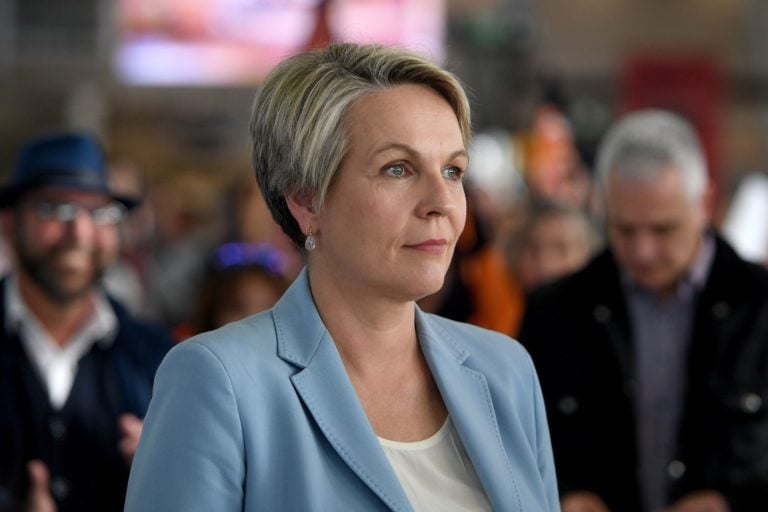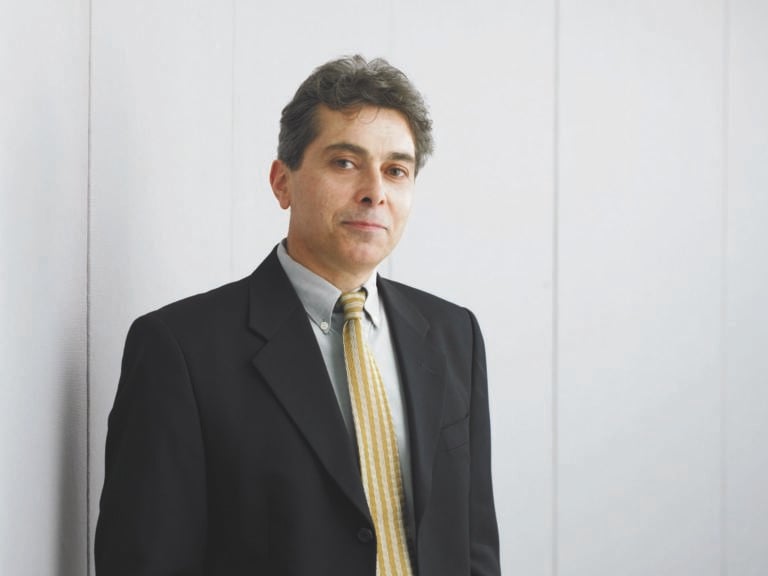In ancient Greece, Aristotle reasoned that the most deserving should be entitled to their moral deserts. In an Aristotelian world, any apt student would hold right to their study of choice regardless of the depth of their pockets. But the philosophy of teleology – as well as the study of Philosophy in general – may be rendered out of reach for many after hefty fee hikes are implemented at Australian universities.
When Education Minister Dan Tehan put another nail in the coffin of Gough Whitlam’s vision for free and equitable education, he said that 28 per cent increases for subjects like law and commerce and 113 per cent increases for humanities subjects like philosophy would be offset by 62 per cent drops in agriculture and maths, 46 per cent slashes in teaching and nursing among other subjects. The purpose is to create “job-ready graduates”, he said during the unveiling of the Coalition government’s plan which is now the focus of a Senate inquiry.
Linking education to jobs
Professor Kosmas Smyrnios, who has taught business at the School of Management at RMIT University for 20 years, is concerned about the government’s “hard economic way of valuing” tertiary education by linking it directly to the job market. “People are going to be herded and corralled into taking a particular course,” he told Neos Kosmos, warning that learning requires motivation and has to be intrinsic rather than external.
“Universities are now being increasingly geared to being like factories for students. You are teaching and providing courses that are going to lead to specific professions rather than teaching scholarship.”
He warns of the traps of this ‘pragmatic’ way of thinking. “Unis are places where people can and should play with ideas,” he said. “That’s where development happens. It’s not about churning out people to move into a particular industry sector.”
READ MORE: Australia’s purse strings: Top economists analyse post-COVID-19 world
National Union of Greek Australian Students (NUGAS) President Denise Serdenes has experienced this first-hand when she made the decision to study Law at the University of Melbourne. “I could have studied for less years had I gone straight into Law at another university. I wanted to go to Melbourne Law School because of its reputation but where you are required to do a Bachelor of Arts Degree along with Jurisprudence,” she told Neos Kosmos.
“I would not have made this decision if the fees were the ones now being proposed”, she said of the decision which sees her student contribution dramatically jump from $34,000 to $43,500 for her degree.
“For me it’s quite severe because I went to a public school. I come from a single-parent household. It was important for me to do well and, when I did, I looked at universities and weighed the costs,” she said, knowing she’ll be paying her student debt for many years to come, especially when the new fees are implemented. Her mother, on the other hand, owes her tertiary education to the Whitlam years.

Gough Whitlam’s legacy
Once considered a preserve of the rich, former Labor prime minister Gough Whitlam left a legacy when he opened tertiary education to working class children by making it affordable for ordinary families, including many migrants. Education and Training Shadow Minister Tanya Plibersek said this gesture directly affected her. “My parents could never have afforded to send three of us to university if Gough Whitlam hadn’t opened up universities to working class kids like us. And when we were in Government last time, we increased university funding from around $8 billion a year to about $14 billion a year,” she said.
READ MORE: Will universities turn to a tiered subscription model for education?

“So fundamentally, I think the most important thing to say about Labor’s approach to university education is we want more people to have the opportunity to go to university. If they’re prepared to work hard and study hard, there should be a place for them, particularly at a time like this of high unemployment when the alternative is the dole queue.”
Ms Plibersek is also concerned with the timing of the legislation with year 12 students struggling and unemployment queues longer than ever before. “So just taking a step back, if you have a look at how young people have been faring this year during the COVID-19 lockdowns, they’ve been remote learning, they’ve had their studies disrupted, they’ve sometimes been able to go to school sometimes not being able to go to school,” she said, pointing to the demoralising affect this will have on the 40 per cent of students who will pay more for their degrees with this proposal. “Some will see the cost of their degrees more than double.”
Let’s hope some of the universities at this event call @DanTehanWannon out for the $1B a year cuts the government is proposing to university funding right now. #FundUniFairly https://t.co/vDX5dLkxWT
— Tanya Plibersek (@tanya_plibersek) September 9, 2020
Independent education (and thinkers)
The humanities, especially, will bleed, because they are viewed as less important for the job market (despite the fact that the education minister bringing in the fees has three arts degrees). “I went to Arts solely to study Law,” Ms Serdenes said. “Doing this degree, I found great value in studying humanities. I have learnt so much on how to be a better member of society and to exercise critical thinking. These are the better skills they are taking away. They are focusing on profession and pushing people to study what they can afford rather than their passion.”

Professor Smyrnios points to the “massification and commercialisation” of education. “When the focus is on employment outcomes rather than the philosophical aspects and the other so-called ‘softer’ things (meaning scholarship, critical thinking etc), excellence will be affected,” he said, worried that universities will end up being like the traditional TAFE and VET sector.
During his career, he has seen tertiary education suffer severe funding cuts, and now a massive drop-off in revenue from the absence of international students has caused further strife and may even have skewed some of the research. Professor Smyrnios asks “where’s the research, and who is doing the research?” He points to one of the four big accounting firms funding most research but wonders if there’s a “push for a particular line”.
“We don’t know where the research is coming from? Who is it?” he asks, pointing to a domino of consequences when universities are deprived of funds which have a direct influence on the economy, standard of life, not to mention the quality of academia drawn to universities as opposed to other more high-paying roles in the private sector.
“We’ll end up having ‘Uber academics’. Why? Because there are going to be a greater number of sessional people teaching on short-term contracts,” he said of a new stream of casual academics, who attain contracts similar to those offered to staff at McDonalds. Universities are already seeing a steady stream of casuals asked to pay for their own insurance and energy costs, deprived of holiday pay or sick leave entitlements or secure employment, factors which usually ensure commitment and lasting output. As casuals, these academics are not reimbursed to mentor undergrads or review coursework and their return the year after is precarious and not conducive to excellence in teaching.
With the very essence of education at stake, universities are pushing for major revisions to the Morrison government’s university fee and funding changes.
Ms Plibersek says the legislation is flawed in that it appears to be “doing exactly the opposite” of what it hopes to discourage by offering perverse incentives. She describes it as a “mystery”.
Meanwhile, while local talent is discouraged from pursuing the courses they have a proclivity towards in favour of cheaper alternatives, the government last week created a Taskforce to operate as a ‘strike team’ to turbo-charge the creation of jobs by recruiting “exceptional talent” from abroad.
“This will aid our recovery and boost jobs for Australians,” Minister Alan Tudge said on Friday.
Professor Smyrnios said the government does not need to look very far for talent and job creation. “We have some of the best academics here,” he said, while also pointing to his own students who will pay 28 per cent more in fees next year should this legislation be implemented. “I teach entrepreneurship, and it involves innovation. You do it by teaching people how to think, how to be creative, how to understand principles, how to start up a new venture and look at the big picture.”
“Innovation begins at home,” he says, and higher education is a great place to grow it.
The Senate inquiry’s reporting deadline is on 25 September. Independent think tank CEDA is hosting of Australia’s Higher Education, attended by Education Minister Dan Tehan, on 16 September. The Morrison government wants changes in place for 2021.
PROPOSED CHANGES
Food and Hospitality: $14,500 from $11,355 (-$1,137 drop in government contribution, $3,145 additional costs in student contribution)
Management and Commerce: $14,500 from $11,355 (-$1,137 drop in government contribution, $3,145 additional costs for student)
Mixed fields: $14,500 from $11,355 (-$1,137 drop in government contribution, $3,145 additional costs for student)
Law and Economics: $14,500 from $11,355 (-$1,137 drop in government contribution, $3,145 additional costs for student)
Humanities: $14,500 from $6,804 (-$5,126 drop in government contribution, $7,696 additional costs for student)
English: $3,700 from $6,804 ($7,274 increase in government contribution, -$3,104 decrease for student)
Architecture & Building: $7,700 from $9,698 ($2,485 increase in government contribution, -$1,998 decrease in student contribution)
IT: $7,700 from $9,698 ($2,485 increase in government contribution, -$1,998 decrease in student contribution)
Mathematics: $3,700 from $9,698 ($2,485 increase in government contribution, -$5,995 for student)
Health: $7,700 from $9,698 ($2,485 increase in government contribution, -$1,998 decrease in student contribution)
Society and Culture: $14,500 from $6,804 (-$9,915 decrease in government contribution, $7,696 increase for student)
Education: $3,700 from $6,804 ($2,038 increase in government contribution, -$3,104 for student)
Clinical psychology: $3,700 from $6,804 (-$47 decrease in government contribution, -$3,104 for student)
Communications: $14,500 from $6,804 (-$12,447 decrease in government contribution, $7,696 increase for student)
Languages: $3,700 from $6,804 ($2,953 increase in government contribution, -$3,104 for student)
Creative Arts: $7,700 from $6,804 (-$47 decrease in government contribution, $896 extra for student)
Allied Health: $7,700 from $6,986 (-$47 decrease in government contribution, -$1,998 decrease for student)
Nursing: $3,700 from $6,804 ($1,375 increase in government contribution, $3,104 drop for student)
Engineering: $7,700 from $9,698 (-$2,760 decrease in government contribution, -$1,998 decrease for student)
Science: $7,700 from $9,698 (-$2,760 decrease in government contribution, -$1,998 decrease for student)
Agriculture: $3,700 from $9,698 ($2,554 increase in government contribution, -$5,998 decrease for student)
Dental: $11,300 from $11,355 ($2,554 increase in government contribution, -$55 decrease for student)
Environmental Studies: $7,700 from $9,698 (-$7,946 decrease in government contribution, -$1,998 decrease for student)
Medical Science: $7,700 from $11,355 (-$7,946 decrease in government contribution, -$3,655 decrease for student)
Medicine:$11,300 from $11,355 ($2,554 increase in government contribution, -$55 decrease for student)
Vet Science:$11,300 from $11,355 ($2,554 increase in government contribution, -$55 decrease for student)









